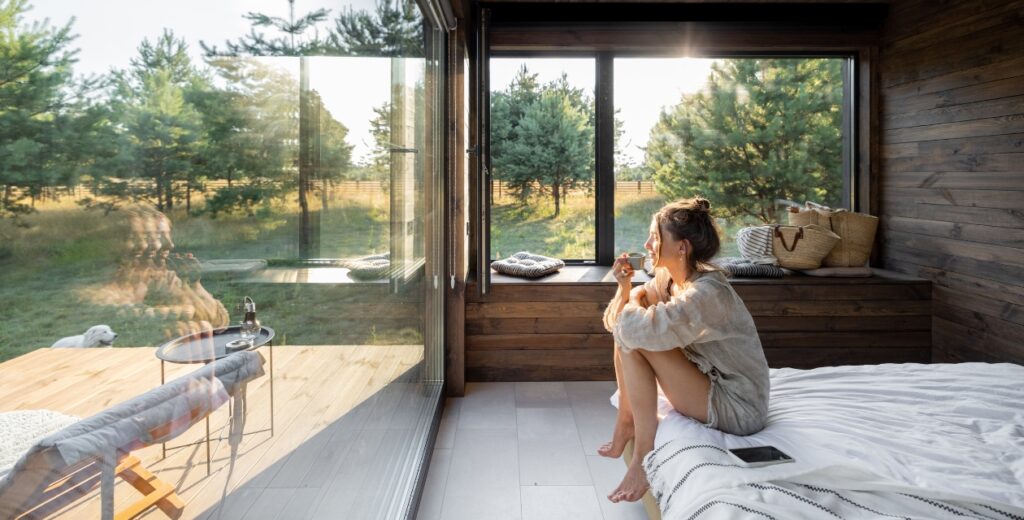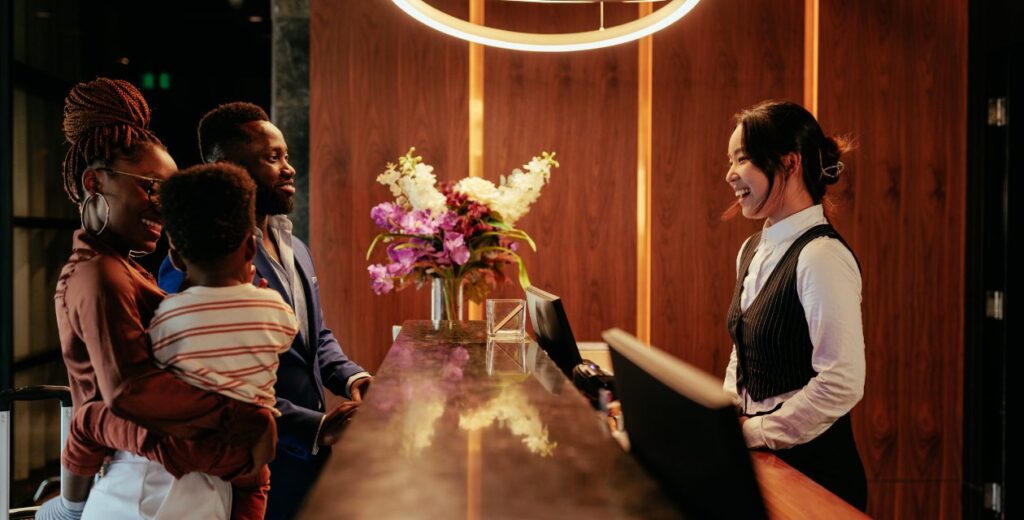Global CRM study preview: What hotels look for in a CRM
What hotels look for in a CRM
This is the second article in a preview series of H2C’s Global CRM Study, a collaborative report that leverages interviews and a global survey to explore the current state of CRM in the hospitality industry.
The importance of a single source of truth as the centerpiece of a profitable customer relationship management strategy is one of the key takeaways from H2C’s Global CRM Study. The vendor-agnostic study combined findings from an online survey of 62 executives of both global and regional hotel chains and interviews with 25 hotel executives and 11 technology providers.
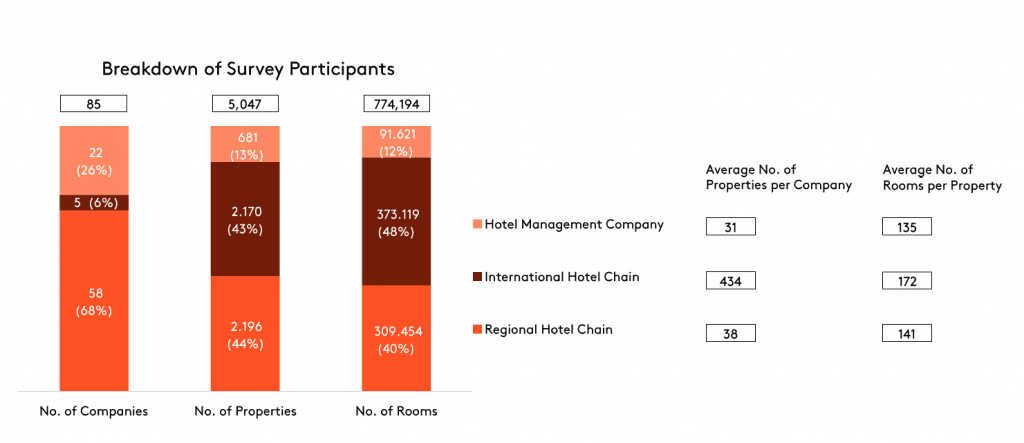
In our second set of takeaways, we focus on what hotel technology buyers are looking for when selecting a CRM. These strengths and opportunities are instructive guideposts to building the future of CRM.
Functionality gaps: Data cleansing is a priority
One of the top challenges with CRM for hotels is the cleanliness of data, as identified by 34% of respondents, of which 20% said that improvements in data cleansing were “important” or “extremely important” to their hotels.
Without clean data, hotels face an unstructured mess that prevents personalization. There are two parts to data cleansing: capturing data in a clean format and normalizing data pulled in from other systems. So, while this is certainly tied to data best practices, the CRM technology itself must assist hotels with data cleansing.
First and foremost, a CRM has to capture clean data so that it’s accessible and easy to use. Next, the technology must integrate across the hotel’s technology stack to pull in data cleanly so that guest profiles can be improved automatically over time. When successfully delivered, this dual mandate makes CRM a powerful truth-teller, said one manager from a regional hotel chain:
“CRM is the only place where you find the truth with regards to data.”
Of course, the truth is murky, at best, without consistently clean data. The task to manage guest data cleansing underlines just how time-consuming the process can be. For 80% of those hotels without a CRM system, it’s predominantly a manual process. Even those with a dedicated CRM struggle with keeping data in order, as 54% manage data cleansing manually.

Without an automated process managed by their CRM systems, hoteliers (and their teams!) waste an enormous amount of time and suffer through unnecessary frustration. The best CRM solutions automatically maintain the quality and utility of data so hotel marketing teams can jump in and do work that creates results — rather than needlessly slogging through tedious data entry each week.
System shift: CRM takes lead on guest profiles
Traditionally, the PMS has housed the rich data that makes up guest profiles. In recent years, guest profiles have transitioned into the CRM. For 29% of respondents, the CRM has become the ideal place to build these detailed profiles. That’s because the guest profile improves with each interaction with the hotel, and thus becomes a single source of truth for hotel marketers.
Looking three years into the future, 35% see the CRM as the leading system for managing guest profiles, compared with 37% choosing the PMS. While the PMS certainly maintains its grip, that’s a precipitous drop from 52% who see the PMS as leading system today. Clearly, CRM is proving its value and winning over converts.
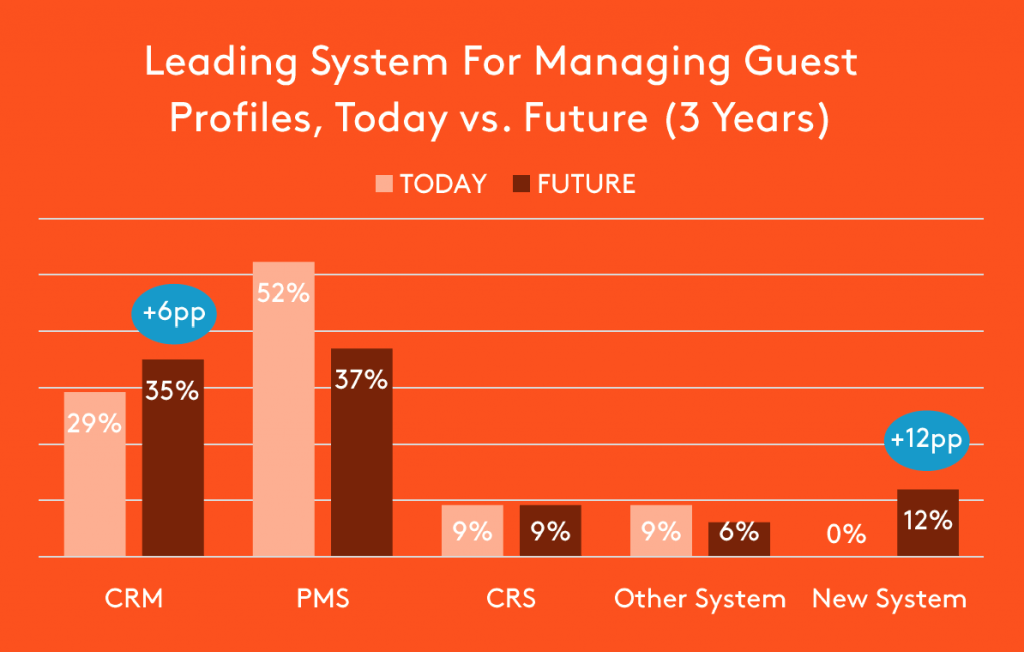
Why is the PMS losing its place at the center of the guest relationship? It comes down to the data, says one respondent from a regional hotel chain:
“CRM is the heart of everything. PMS has lost power because of losing sight of what is really important in the future: clean and accessible guest data.”
Another key advantage of the hotel CRM is a focus on seamless sync across systems. When the CRM provides clean data that can be accessed easily for guest communications, marketing, and “surprise and delight” moments, hotels benefit handsomely.
One major opportunity for CRM companies is to fulfil this promise for seamless integration with other systems: A surprising 24% felt that this was a key area for improvement. Here at Cendyn, we believe in the power of holistic cross-system integrations. One of the tightest integrations has to be between the PMS and the CRM tool, as it’s the data layer that makes CRM especially valuable to hotel. This is why we have invested a great to become the most integrated CRM in hospitality: integrations make the dream possible!
Ancillary sales: Opportunity remains mostly untapped
One of the core promises of a fully-integrated CRM is more accurate personalization that leads to higher conversions for ancillaries and upsells. To achieve this, hoteliers need certainty around the accuracy of their data so that offers can be successfully targeted.
When asked how successfully their organizations use CRM data for specific types of upsells and ancillaries, responses were mixed. Most hotels were only modestly successful using CRM data to optimize ancillary revenue:
- 35% were either very or modestly successful with customized offers for groups or customer segments.
- 28% were either very or modestly successful with personalized offers for individual guests.
- 25% were either very or modestly successful selling F&B packages.
- 22% saw no success at all when selling parking to guests.
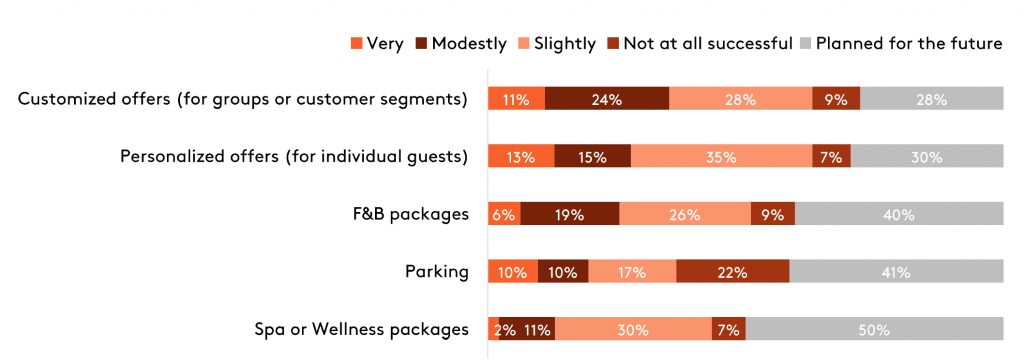
The bottom line: Building a healthy business of ancillaries isn’t easy! In fact, many respondents seem to be looking towards the future to build a plan to optimize ancillary revenues.
Ongoing and sustainable success with CRM requires a commitment to test and learn. With a healthy appetite for experimentation, hotels of all sizes can lean on their creativity and combine it with data to craft offers and packages that resonate with guests. By mapping the right products to the right guests, hotels earn not just more revenue but also boost guest satisfaction. That’s the ultimate value of a CRM, concluded one hotelier:
“CRM means building positive customer experiences to enhance profit margins.”
